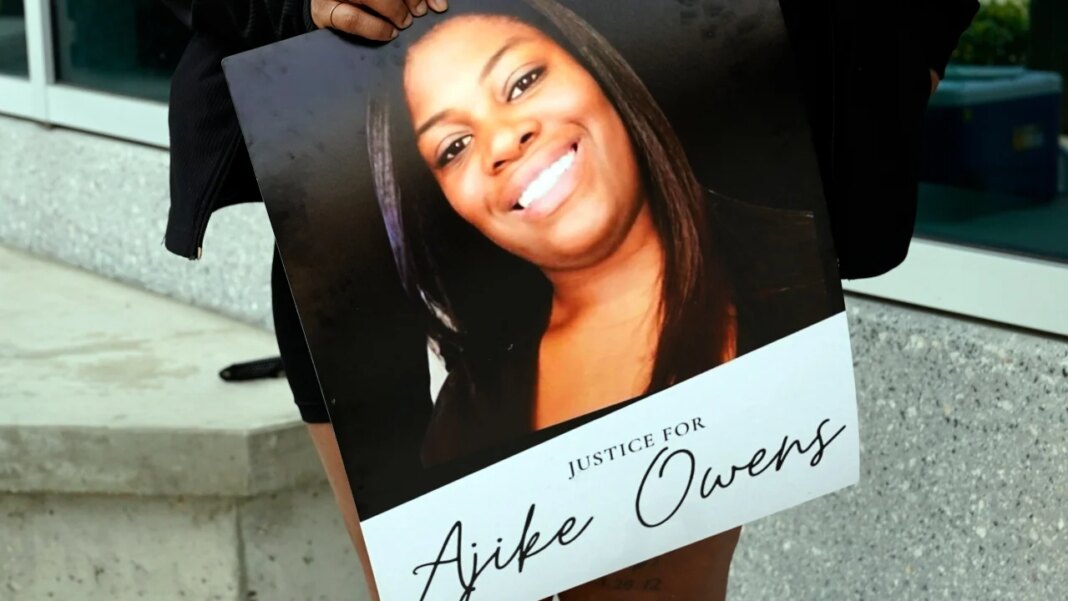Netflix’s Latest Documentary: A Deep Dive into The Perfect Neighbor
Netflix has once again captured the public’s attention with its latest documentary, The Perfect Neighbor. This gripping film unfolds the tragic story of Ajike Owens, a Black mother of four, whose life was irrevocably altered when she was gunned down by her neighbor, Susan Lorincz. What sets this documentary apart is its use of raw, unfiltered materials—eschewing traditional talking heads for two years’ worth of body cam, ring cam, and cell phone footage that illustrates the events leading up to this heartbreaking incident.
The Power of Documentary Storytelling
Director Geeta Gandbhir’s choice to rely on real footage creates an immersive experience for viewers, allowing them to engage with the documentary on a deeply emotional level. Unlike many traditional documentaries that rely on expert interviews and reenactments, The Perfect Neighbor immerses audiences in the reality of the events. The stark absence of commentary and narration allows the raw visuals to speak for themselves, making the narrative even more impactful.
In Gandbhir’s words, this shift in documentary filmmaking is a reflection of broader societal changes. “We now live in a world where making media is in the hands of anyone,” she explained in an interview with Variety. This democratization of storytelling adds a layer of authenticity that resonates deeply with viewers, especially in a time when many are grappling with issues of race, violence, and justice.
Emotional Resonance and Viewer Reactions
Since its release on October 17, The Perfect Neighbor has soared to the top of Netflix’s charts, quickly becoming a conversation starter on social media. Audience reactions have been overwhelmingly positive, with many viewers praising its emotional depth and direct approach. Tweets expressing visceral reactions have surfaced, indicating that the documentary has struck a chord with those who view it.
Duaine Carma Roberts perfectly articulated the sentiment felt by many: “The Perfect Neighbor is one of those documentaries you can only watch once, because it’s so damn heartbreaking.” Such reactions emphasize that the documentary is not just educating viewers on a tragic event, but also engaging them emotionally, making it a compelling viewing experience.
Unfolding a Tragedy without Bias
One of the standout features of The Perfect Neighbor is its commitment to neutrality. By utilizing factual footage, the film allows the narrative to unfold organically, letting viewers piece together their interpretations without overt influences. This has led to a sense of unity among audiences who have collectively acknowledged the complexities of the situation.
Several Twitter users expressed their appreciation for this approach, highlighting how the absence of guiding voices allows for a more visceral understanding of the events. “This is how it should be,” one viewer tweeted, championing the documentary’s format that prioritizes real visuals and facts over dramatized interviews.
Community and Loss: The Ripple Effect
The impact of Owens’ death extends far beyond her immediate family, affecting a close-knit community that once thrived in mutual harmony. Many comments on social media reflect on how the neighborhood’s innocence was shattered in an instant, as Susan Lorincz’s actions robbed children of their joy and sense of security.
Viewers noted the stark contrast between the community’s previous idyllic existence—bike rides, games, and shared laughter—and the haunting aftermath of violence. The film effectively encapsulates this collective loss, portraying not just the tragedy of one life, but the ripple effect it creates within a community.
A Cultural Reflection
The Perfect Neighbor resonates in a cultural landscape increasingly aware of social justice issues. Its storytelling method echoes the engagement found in previous impactful works like Ava DuVernay’s When They See Us, which also highlighted racial injustices and the lives affected by them. The documentary serves as a mirror, reflecting not only a singular tragedy but also a wider societal issue that demands attention.
Through Gandbhir’s directorial lens, the film effectively invites viewers to confront uncomfortable truths about race, community, and violence in contemporary society. The documentary’s critical success and audience engagement underscore the importance of such narratives in driving conversations about essential societal issues.
In essence, The Perfect Neighbor is a documentary that blends raw emotion with authentic storytelling, leaving an indelible mark on its viewers and reminding us of the fragility of life and community.



